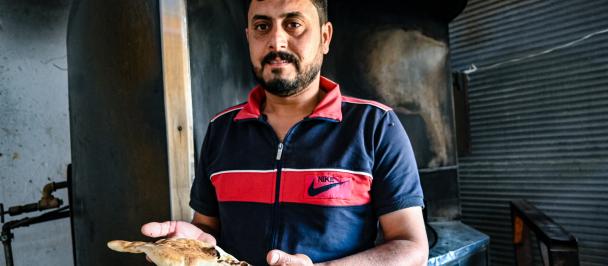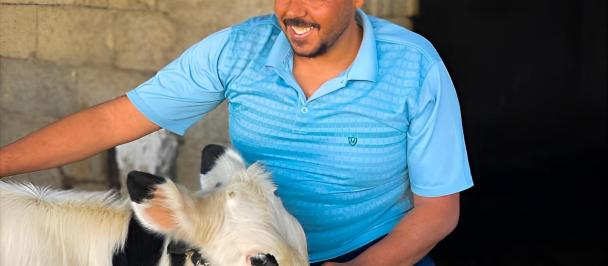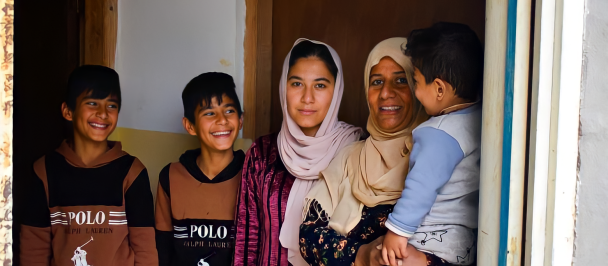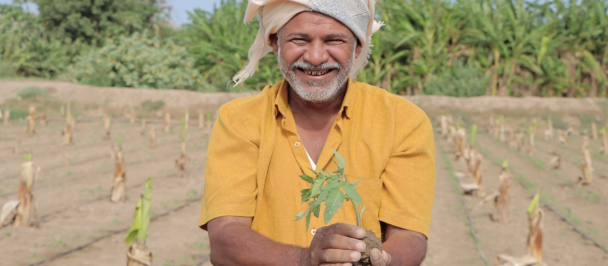UNDP’s cash for work rebuilds facilities and provides income for returnees
Building blocks to recovery and resilience
March 13, 2023
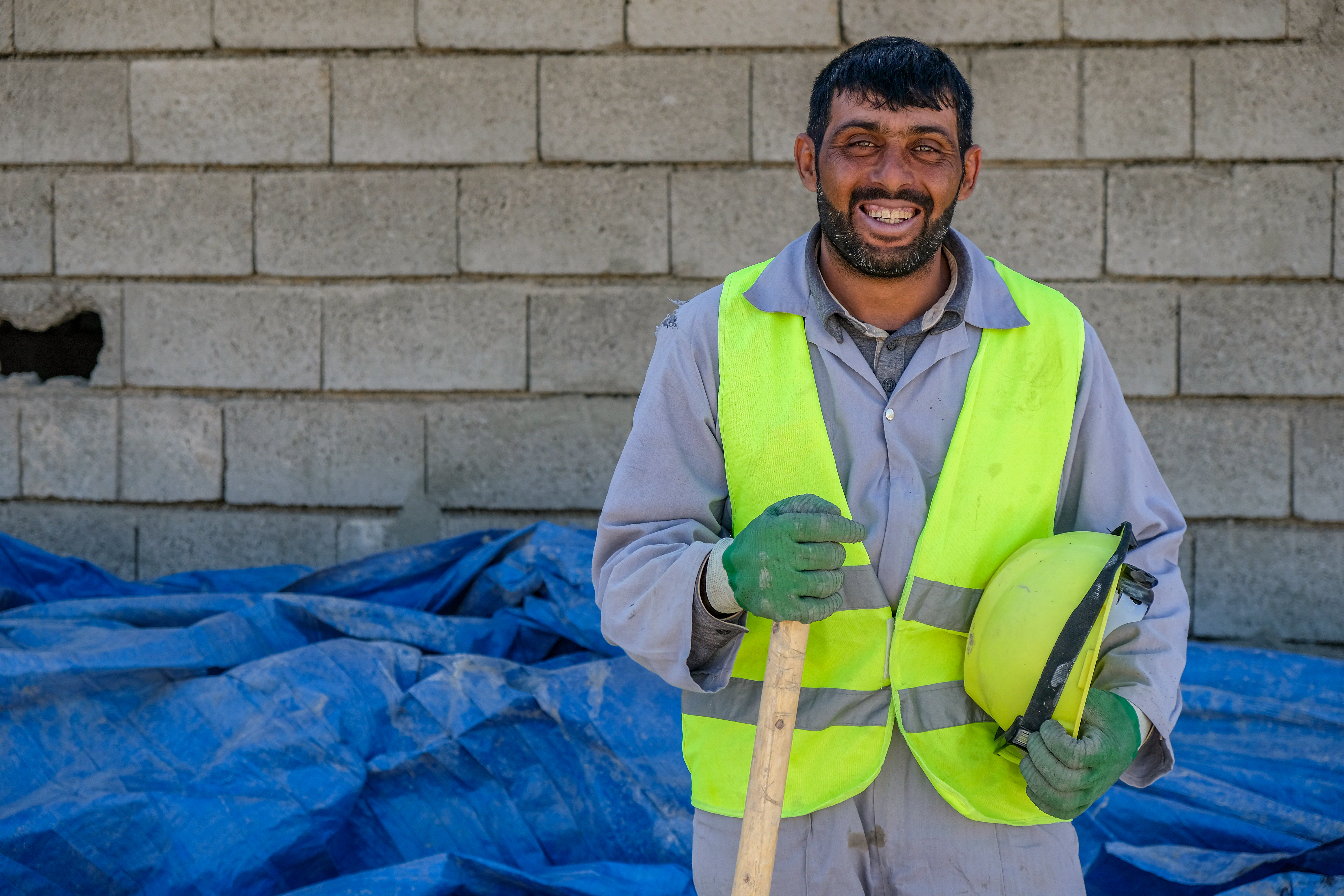
Hussein Jasim Mohammed is one of the 86 workers who are helping with the rehabilitation of Hawija's vegetable market.
Under northern Iraq’s scorching sun, Hussein Jasim Mohammed powers through. At 34, his energy is at its peak. With a wheelbarrow, he transports mounds of sand and gravel and hundreds of concrete blocks for hours.
Hussein is used to heavy manual labor. Assisting masons and carpenters for more than a decade, he learned so much about real hard work. From cutting wood to mixing mortar and concrete to laying stones and clay bricks to building walls and structures, he’s done it.
“Working in construction requires a tremendous amount of strength and skills. There's a lot of sweat and pain, but you learn more about the craft and improve every day. It is a decent job, and it provides an income for my family.” Hussein Jasim Mohammed
For three months now, Hussein and 85 others have been working at the Hawija vegetable market which UNDP has been rehabilitating. In return for the hours they work, each makes US$ 20 (approximately 29,000 Iraqi dinars) per day. Managed by UNDP’s engineers and foremen, workers, depending on their skills, are given a variety of tasks like cleaning, installing electrical wires, drilling, mixing concrete, and replenishing materials.
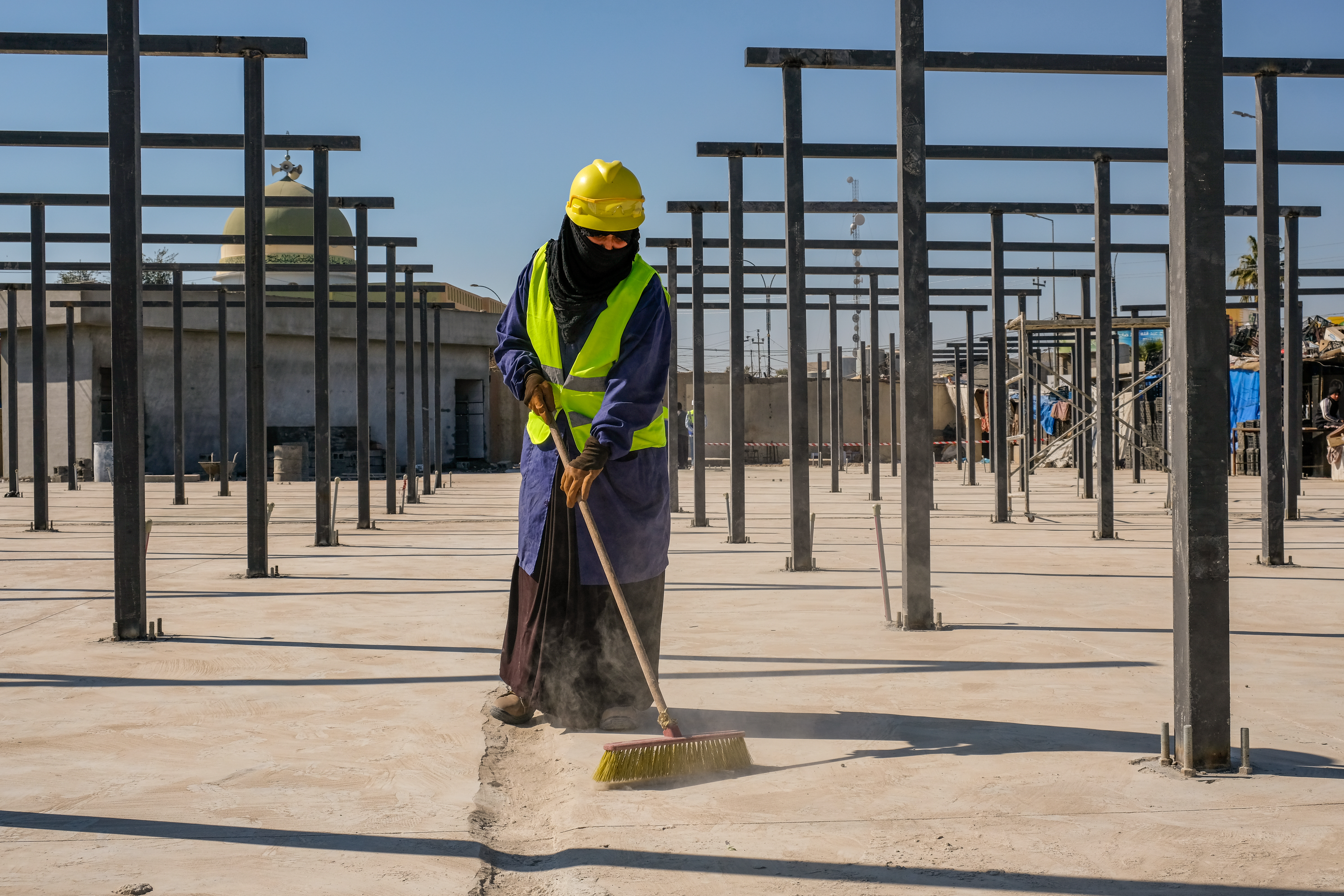
UNDP’s cash-for-work has provided income for over 1,600 women-headed families like Najiba’s.
For newbies like Najiba Taha Mohammed, the work involves mostly cleaning. The work hours are very reasonable. The workers come in at 7:00 am and leave at 2:00 pm, allowing working mothers, like Najiba, more hours with their kids at the end of a strenuous day.
As a breadwinner, Najiba, 40, spends most of her earnings on food and medicines for her ailing husband and their four children and upgrading their home that was damaged during the conflict. She’s been able to buy new furniture and make simple home repairs.
“The cash-for-work project is a good opportunity because we get to help in rebuilding Hawija’s facilities and earn money at the same time.” Najiba Taha Mohammed

Najiba (left) and Hussein (right) both work at the Hawija vegetable market which is being rebuilt by UNDP.
Knowing the job at the vegetable market was only temporary, Hussein saved up some of his earnings to buy a motorcycle and start a courier and delivery service in his neighbourhood. As more shops reopen and more families return, he believes this service will continue to be in demand and be profitable.
“I have worked in construction for many years. It does not provide a steady income. It is not a regular job. In three months, our work here at the vegetable market ends,” he says.
After working at the vegetable market, Hussein takes only an hour to rest. Then, for the next four hours, he rides his new motorcycle and roams around Hawija and travels from one client to another, receiving and delivering goods and packages. From this, he earns at least extra US$10 (14,000 Iraqi dinars) per day.

Tariq Mosa Sulaiman, another cash-for-work participant, supports the concreting and power installation at Hawija’s mobile shop market.
Like Hussein, Tariq Mosa Sulaiman, 42, sets aside some of his earnings from working at Hawija’s mobile shop market to invest in and shift to farming, hoping for a steadier income to support his family of seven.
“All five of my children are still studying, so I need to keep working to support them. Using my savings, I dug a well and built a farm. I planted tomatoes, cucumbers, and other vegetables that I can sell in the market,” shares Tariq.
Tariq still has to work at the Hawija mobile shop market for a month, but he’s extremely excited about the potential of his vegetable farm/business.
“I have always loved working on a farm,” he says, reminiscing his past years working in the wheat fields. “Farming requires a lot of hard work and patience. Done right and with time, farms bear fruit.”
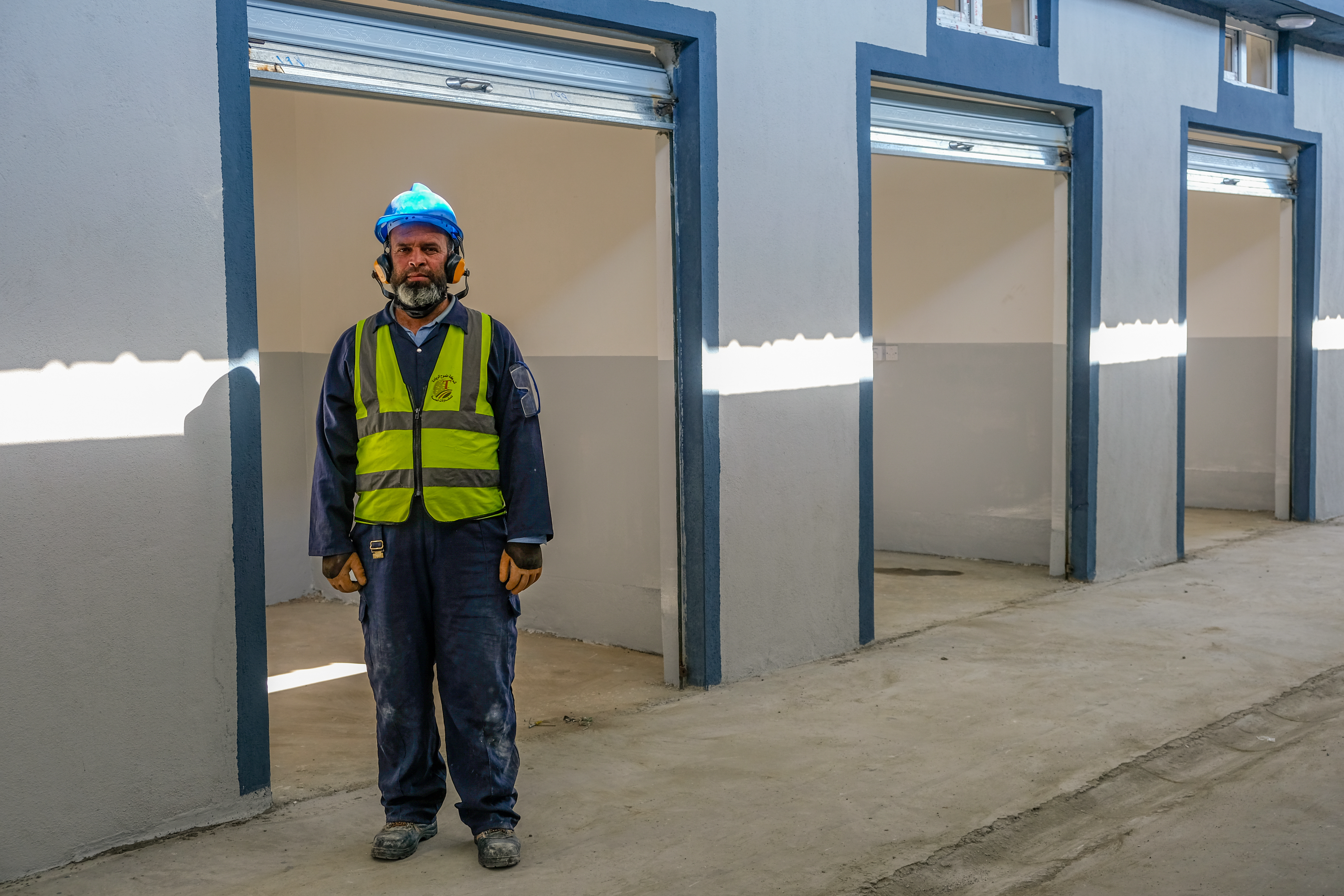
Tariq inside Hawija’s newly rehabilitated mobile shop market.
About
The cash-for-work project and rehabilitation of Hawija’s vegetable market and mobile shops are implemented by UNDP’s Building Resilience through Employment Promotion (BREP) project. It is supported by the German Federal Ministry for Economic Cooperation and Development (BMZ), provided through the KfW Development Bank. Hawija’s vegetable market has space for 139 shops while the mobile shop market has 30 stalls.
As of February 2023, BREP has provided cash-for-work opportunities to around 5,500 people, cash grants to over 1,600 women-headed families, skills training to 1,120 people, and rehabilitated around 2,350 homes, two small and medium enterprises, and one agricultural infrastructure.

 Locations
Locations